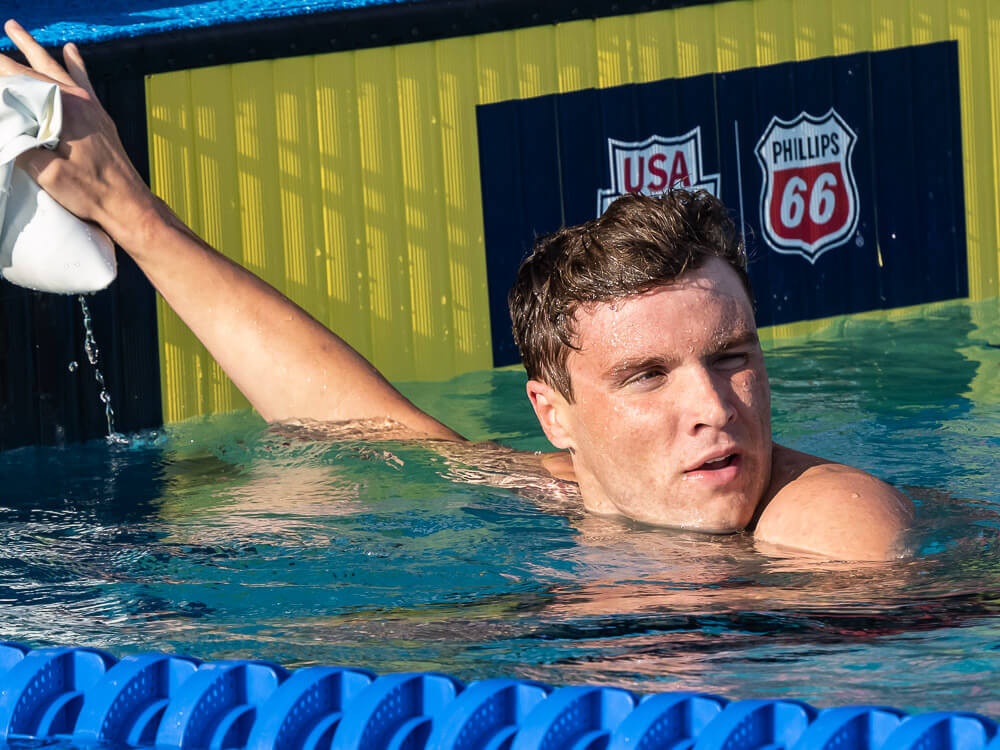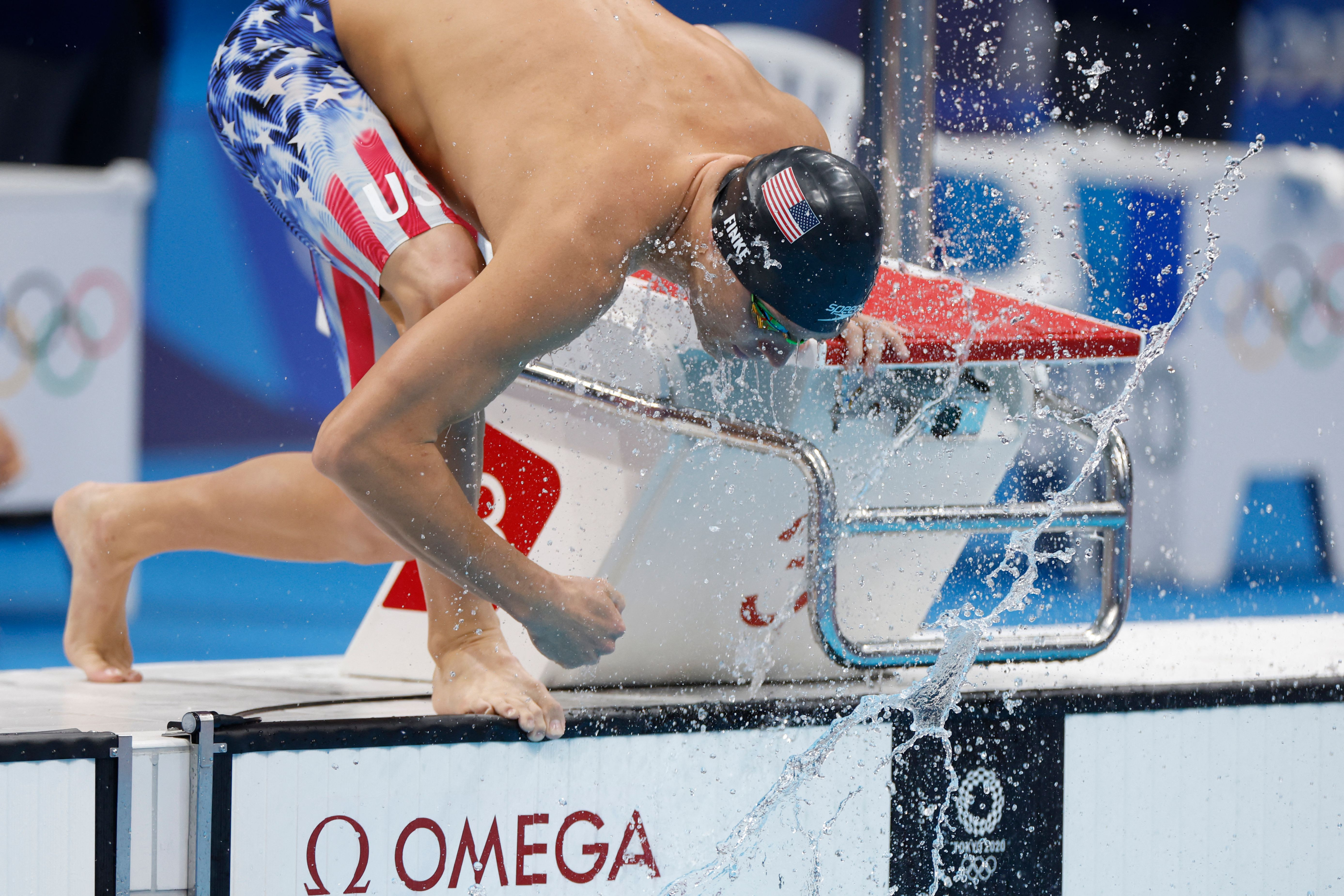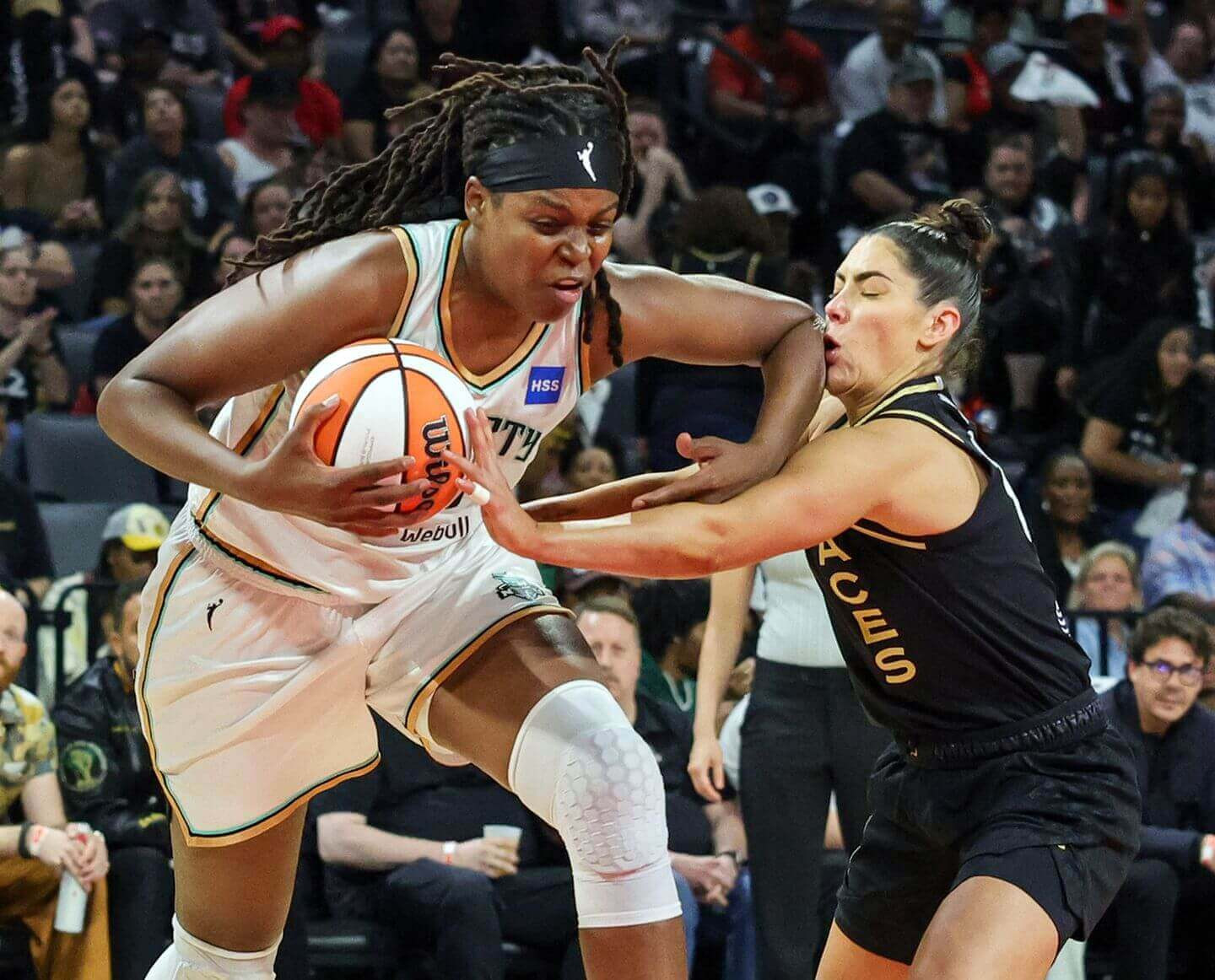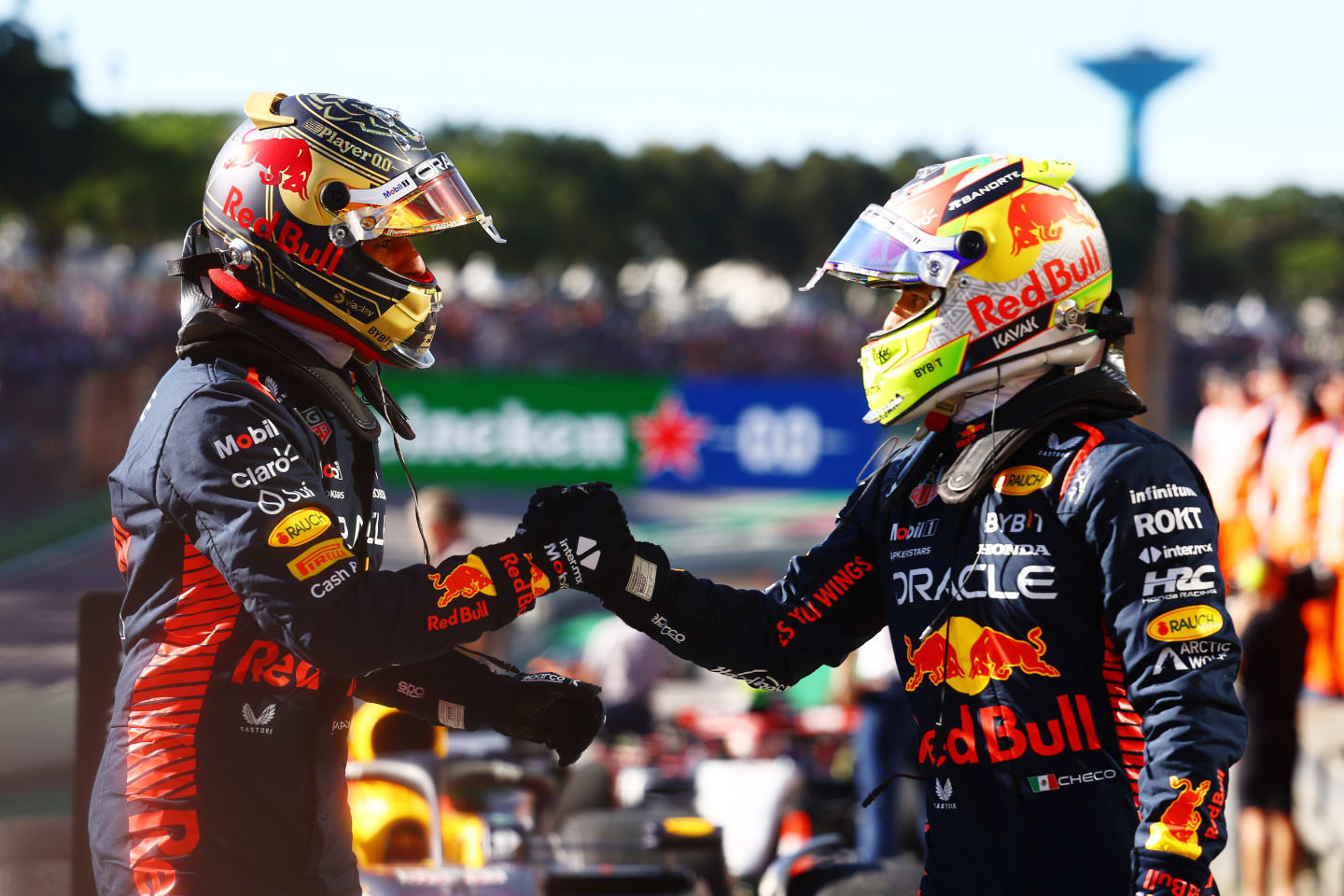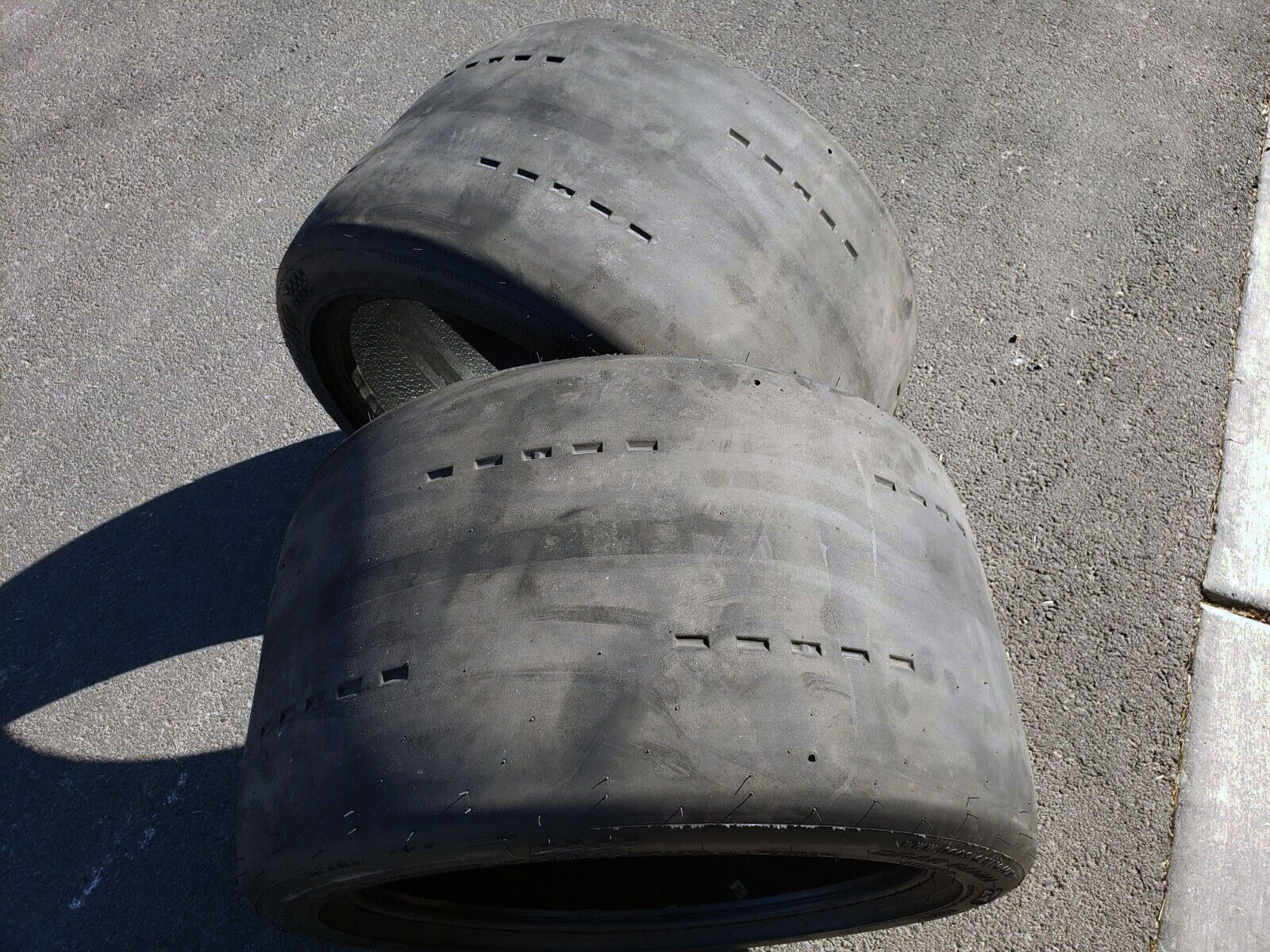American iron-man Bobby Finke smashed the men's 1,500m freestyle world record as he retained the Olympic gold medal in a thrilling swim that put the United States on top of the medal table at the Paris pool with two events remaining. After 30 lung-busting laps, Finke touched the wall in 14 minutes, 30.67 seconds at La Defense Arena, eclipsing Sun Yang's 12-year-old mark of 14:31.02 set at the London Games. Gallant Italian Gregorio Paltrinieri took silver, 3.88 seconds behind Finke, with Daniel Wiffen, the 800m gold medalist, taking the bronze for Ireland. Finke became the first male swimmer to go back-to-back in the grueling event since Australia's Grant Hackett in 2000-04 and the first American since Mike Burton in 1968-72. It gave the U.S. its seventh gold medal of the meet, matching Australia at the top of the table on the last night of competition. Three years after winning the 800m and 1,500m golds at Tokyo, Finke marked his place among the titans of distance swimming with an aggressive swim which he led from start to finish. He was a full body length ahead of Paltrinieri and Wiffen by the 300-meter mark. Paltrinieri made a charge near the 600-meter mark and pulled up to Finke's waist, but there was no stopping the American. Ireland's first men's Olympic swimming champion, Wiffen had tipped a world record would be needed to take gold and hoped he would be the man. It was Finke, though, producing something special to hold on for the world record and send the La Defense Arena crowd into hysteria. NANTERRE, France — The U.S.'s Bobby Finke established a razor-thin lead early in the Olympic 1,500-meter freestyle final, an endurance contest that forces swimmers to battle for nearly a mile. Finke was challenged until the final stretch by Italy's Gregorio Paltrinieri, but in the final hundred meters he pulled away. The American won gold by nearly four seconds, with a time of 14:30:67, shattering the world record set by Chinese swimmer Sun Yang at the 2012 Summer Games in London. “I could see I was half a body length to a body length in front of [the record] at times,” Finke said after the race. “I knew I was on that pace. That wasn’t really my focus, but I did hit the world record, so I’m really proud of that.” He described the final third of the endurance race as grueling: “Toward the end it was starting to hurt a lot, especially that last 400 meters. But I knew it was going to hurt.” Finke is the first member of the American men's swimming team to win gold in Paris in an individual event. His win and a later victory in the women's 4x100 meter medley relay brings the tally for U.S. swimmers to eight gold medals in Paris. Palterinieri took silver, with Daniel Wiffen of Ireland finishing in third to claim bronze. Three years ago, Finke established himself by winning the 1,500 meter race in Tokyo. According to Olympics.com, he was the first American to win at that distance in the Summer Games since 1984. Finke also won a silver medal at the Paris Games the 800-meter freestyle. While Sunday's races wrap up Olympic pool swimming at La Defense arena in Paris, there are still men's and women's outdoor 10,000-meter marathon swimming competitions scheduled for Thursday and Friday. Those races are set to be held in the Seine River. NANTERRE, France -- The United States set two world records on the final night of swimming at the Paris Olympics on Sunday, winning the gold medal count over rival Australia and easing the sting of the first loss ever in the men's 4x100-meter medley relay. Bobby Finke set a new standard in the 1,500 freestyle and the American women closed a thrilling nine days at La Defense Arena with another record in their 4x100 medley relay. Finke was under world-record pace the entire race and really turned it on coming to the finish. He touched in 14 minutes, 30.67 seconds to break the record of 14.31.02 set by China's Sun Yang at the 2012 London Games. “I really wanted to get on top of the podium again and hear the anthem all over again like I did for the first time in Tokyo,” said Finke, who swept the 800 and 1,500 three years ago. It was the only individual gold medal won by an American male during the Paris Games. The silver went to Italy's Gregorio Paltrinieri in 14.34.55, while race favorite Daniel Wiffen of Ireland couldn't follow up his triumph in the 800 freestyle. He was never a factor and settled for the bronze in 14:39.63, barely holding off Hungary's David Betlehem for the final spot on the podium. Finke, who won the gold medal in the event in Tokyo, became the first male swimmer to go back-to-back in the grueling 30-lap event since Australia's Grant Hackett in 2000 and 2004 and the first American since Mike Burton in 1968 and 1972. “It was a dream,” Finke said. In the women's 4x100-meter relay, Lilly King made up for a disappointing showing in her individual events by powering the American women's to the lead on the breaststroke segment. Then it was Gretchen Walsh and Torri Huske, two of the biggest U.S. stars at these games, bringing it home in 3 minutes, 49.63 seconds to break the record of 3:50.40 set by the U.S. at the 2019 world championships. Regan Smith led off in the backstroke leg, earning a relay gold for the second night in a row after starting her Olympic career with five silvers and a bronze. Australia, the defending Olympic champion, took the silver this time in 3:53.11. The bronze went to China in 3:53.23. The United States finished with eight gold medals to edge out rival Australia, which won seven events. Still, it was the lowest victory total for the U.S. team since the 1988 Seoul Games, when they were beaten by a doping-tainted East German program. The Americans finished with 28 total medals at these Games, two shy of their total three years ago in Tokyo. The Associated Press and Reuters contributed to this report. Bobby Finke set a new 1500 free world record of 14:30.67, 12 years to the day since Sun Yang set the previous mark at London 2012. The American was 0.94 inside Sun’s WR at 1450 and came home in 26.27 to take 0.35 off the Chinese athlete’s long-standing mark and defend the title he won in Tokyo three years ago. Finke, coached by Anthony Nesty at the University of Florida, becomes the fourth man to win back-to-back titles in the longest race in the pool, joining fellow American Mike Burton (1968/1972) and Australian great Kieren Perkins (1992/1996) and Grant Hackett (2000/2004). Vladimir Salnikov also won two titles but eight years apart in 1980 and 1988. Gregorio Paltrinieri, Bobby Finke & Daniel Wiffen: Photo Courtesy: Andrea Masini / Deepbluemeida Gregorio Paltrinieri was second in 14:34.55, adding silver to his Rio 2016 gold, with Daniel Wiffen adding bronze to his 800 title in 14:39.63. David Betlehem of Hungary was fourth in 14:40.91 while also of note was Kuzey Tuncelli who lowered his WJR to 14:41.22, as the 16-year-old finished fifth. The Turkish teenager demolished the previous record last month when he went 14:41.89 at the European Junior Championships to take 4.2secs off the previous standard of 14:46.09 held by Croatian Franko Grgic since 2019. Ahmed Jaouadi of Tunisia was sixth in 14:43.35 followed by French pair David Aubry (14:44.66) and Damien Joly (14:52.61) One reason Sun’s record stood the test of time was the Chinese athlete’s final 100 where he split 27.81/25.68 for an eye-watering 53.49. To put that into some kind of context, Paltrinieri was 2.81 inside the WR at 1400 at the Budapest worlds in 2022 but his final 100 was 4.59secs slower as he finished 2.78secs outside in 14:32.80, a European record. No other man had broken 14:32 until Ahmed Hafnaoui touched out Finke for the 2023 world title in 14:31:54 to 14:31.59. Finke is noted for her trademark late charge but the 24-year-old struck out from the first stroke and seemed to take the rest of the field by surprise, such was his scorching pace and subsequent clear water. He reached 400 in 3:50.38 ahead of Paltrinieri (3:52.05) and Wiffen (3:53.30) before the Italian ate into the deficit to move within 0.69 at the 600m mark with the Irishman more than a further 2secs adrift. Paltrinieri reduced the deficit to 0.6 at the halfway mark as Finke reached 750 in 7:15.88 to 7:16.48. The American picked up the pace again however and at 1000m was 1.38 inside WR pace. Paltrinieri attacked again but Finke’s turns and underwaters gave him an advantage every time. Come the 1400m mark and Finke turned in 13:35.33 – 1.16 ahead of Paltrinieri with Wiffen a further 4.68secs adrift – and 2.20secs inside the WR. At 1450, that had been reduced to 0.94 and it appeared the record may elude Finke given Sun’s blistering final 50 of 25.68 in London all those years ago. Finke, however, turned on the turbo to come home and consign Sun’s record to history. Bobby Finke: Photo Courtesy: Deepbluemedia As he broke the duck for the US male swimmers in Paris, they avoided the fate of being the first team to not have an individual male title since Athens 1896. “I knew,” said Finke. “I was reading all the articles and all the comments and everything. I like reading that stuff. It kind of motivates me inside. “The world’s getting faster, and I think it’s a really good thing. It’s a really healthy thing for the sport. If one country is always dominating, I can’t really sit there and say the sport is growing. As much as it sucks that we’re not dominating any more, I think it’s good for the sport, and it shows how far the sport has come. Like what Michael Phelps has been able to do for the sport and potentially what Leon Marchand’s going to be able to do for the sport.” Going out fast, he said, enabled him to build up a lead that wasn’t threatened. “That really was not my strategy to go into the race. I didn’t know how the race was going to play out, so I kind of saw I had a pretty decent lead at the 300 and I knew I kind of just had to keep going and hopefully try and make the guys hurt a little bit trying to catch up to me. They started catching up to me, and I was getting a little worried, but I knew I just had to keep pushing him. As long as I could keep a little bit of a distance, I knew I was in good shape.” He added:” I could see the world-record line on the board a couple of times, it wasn’t like I was trying to see it, I just happened to see it.” Paltrinieri now has five Olympic medals from the last three Games – one gold, two silvers and two bronzes including a third-placed finish in the 8 in Paris. Paris 2024 was the Italian’s fourth Games, 12 years after making his Olympic debut at London 2012 where he finished fifth aged 17. Up next is the open water in which he won bronze in Tokyo as well as world and European titles. His is a career of longevity, but the hunger remains. “It will be always there,” he said. “If I quit today, tomorrow I will miss it. I have always longed to compete. I started without feeling nervous. I feel the same every time I compete, for the European championships, the worlds, the Olympic Games.” Neither is he looking too far ahead nor pondering retirement with the Italian turning 30 next month. Gregorio Paltrinieri: Photo Courtesy: Andrea Masini/Deepbluemedia “I tried not to think about it over the past months, because I was thinking about the present, the moment. These could have been my last events in the pool. The open water might allow me to keep going, but I am not getting my head around medals, I am thinking more about my desire. I might even carry on (swimming) in the pool. “I could even try to get on other podiums, but I am thinking more about what I like doing. In this moment, the pool has become very tiring for me. Let’s see.” Wiffen has had an astonishing 2024 so far with double gold at the Doha worlds followed by gold and bronze in the French capital. The 23-year-old has almost single-handedly pulled Irish swimming out of the shadow that had been cast by Michelle Smith, who won triple gold at Atlanta 1996 only to be banned for tampering with a doping sample two years later. Wiffen’s time was his fourth-fastest and matched the time that secured Ryan Cochrane silver behind Sun 12 years ago. Wiffen, who is coached by Andi Manley at Loughborough Performance Centre, had mixed feelings, saying: “To get a bronze medal in this, I’m sure if I said it at the start of the week, people would be very happy with it. But obviously, becoming an Olympic champion on the third day then finishing it off on the ninth day, it’s a little bit sad.” After qualifying first from the prelims, Wiffen set his sights on the WR although he ‘knew’ that Finke would change his tactics and instead it was the American who wrote a new line in the history books. “I said to Gregorio before the race that I knew that was going to happen,” he said. “And the only problem was I didn’t see it. I was looking that way, but I got body-blocked by Greg. Maybe that was the same what happened to Bobby in the 800 but I didn’t see Bobby go and by the time I noticed, I saw this leg kick, and I was like, oh, okay, now with this it’s going to be a very painful 1,500 for me.” He added: “I was trying to dig deep, trying to push it on. I was catching in the middle. And then, to be honest, I just got blew up because it was probably a bit too much today to catch.” Wiffen had studied Sun’s 2012 race many times and in an interview with Swimming World last year, he identified Finke as the only swimmer who could possibly come back in a 53, adding somewhat prophetically: “I‘m not going to lie, I think you just have to hold a pace that’s way under the WR so you’ve got that leeway on the last 100 so you probably need to be three seconds faster than him going into the last 100.” He said in Paris: “I’m happy for it to go. It was a record that needs to be off the books. And I’m very pleased with Bobby. He’s a great competitor, and everybody’s very friendly in the field, which maybe you don’t get in a lot of events. And I’m very happy that all three of us shared the podium again, maybe different order this time than the 800, but it’s going to be a long, long couple of years of battling it out for who gets the top spot.” Welcome to our community. We invite you to join our discussion. Our community guidelines are simple: be respectful and constructive, keep on topic, and support your fellow commenters. Commenting signifies that you agree to our Terms of Use Welcome to our community. We invite you to join our discussion. Our community guidelines are simple: be respectful and constructive, keep on topic, and support your fellow commenters. Commenting signifies that you agree to our Terms of Use NANTERRE, France (AP) — The final night of swimming at the Paris Olympic stirred a wide range of emotions for an American team that no longer rules the world. A world record from Bobby Finke. Elation. A historic loss that reignited gripes about Chinese doping. Stunning. Finally, another world record for the women’s 4x100-meter medley relay team to edge out rival Australia for the top spot in the gold-medal table. Whew! “Just an awesome way to cap off the meet,” said Lilly King of the winning relay team, who joined her teammates in strolling around the deck holding up the stars and stripes as the crowd filed out La Defense Arena. Finke set his new standard in the 1,500 freestyle before the American women closed a thrilling nine days of swimming in style. The U.S. finished with eight gold medals to edge out rival Australia, which won seven events. Still, it was the lowest victory total for the Americans since the 1988 Seoul Games, when they were beaten by a doping-tainted East German program. They finished with 28 medals overall, two shy of their total three years ago in Tokyo. In all, 13 nations won at least one gold — French star Léon Marchand was essentially a country unto himself — and 19 teams made the medal podium. After a bevy of disappointing performances by some of its biggest names, the U.S. team was very much aware of its gold-medal battle with the Aussies. “I knew Bobby had tied it up,” King said. “Bobby’s swim was electric. That was amazing. He definitely got my energy going for the relay. I was pumped to hopefully assert that lead and get the gold.” That’s just what she did. King, whose third Olympics will be her last, made up for a disappointing showing in her individual events by powering to the lead on the breaststroke segment. Then it was Gretchen Walsh and Torri Huske, two of the biggest U.S. stars at these games, bringing it home in 3 minutes, 49.63 seconds to break the record of 3:50.40 set by the U.S. at the 2019 world championships. Regan Smith led off in the backstroke leg, earning a relay gold for the second night in a row after starting her Olympic career with five silvers and a bronze. Australia, the defending Olympic champion, took the silver this time in 3:53.11. The bronze went to China in 3:53.23. Four world records were set during the meet, three of them by the U.S. China stunningly won the gold in the men’s 4x100 medley relay, ending the American run of dominance that stretched back to the introduction of the event at the 1960 Rome Games. The only time the U.S. didn’t win gold was in 1980, when it boycotted the Moscow Games. The winning team included Qin Haiyang and Sun Jiajun, who were both among the nearly two dozen swimmers who tested positive for a banned substance before the Tokyo Games but were allowed to compete. The result stirred more hard feelings from other nations that feel the Chinese might have gotten away with cheating. The real star of the Chinese team was Pan Zhanle, who had previously set a world record while winning the 100 free and powered away from American Hunter Armstrong on the anchor leg to touch in 3:27.46. The Americans were left with the silver in 3:28.01, with France taking bronze in 3:28.38 to give Marchand his fifth medal of the games — four of them individual golds. British star Adam Peaty, whose team barely missed out on a medal by finishing fourth, blasted a system that allowed the Chinese swimmers to compete at the Olympics. “If you touch and you know you’re cheating, you’re not winning, right?” Peaty said. “As an honorable person, I mean, you should be out of the sport, but we know sport isn’t that simple.” Peaty noted that after the initial revelations, additional reports surfaced of more positive tests in the Chinese program that went unpunished. “I think we’ve got our faith in the system, but we also don’t,” he said. “Whoever’s in the race, I expect in my head that it has to be fair for them to be there. We did our best job as a team to do that, and it may have been (worthy of) a bronze. Who knows?” Caeleb Dressel, who swam the butterfly leg for the Americans, said prior to the Olympics that he didn’t have faith in the World Anti-Doping Agency or his sport’s governing body, World Aquatics. With a silver around his neck, he seemed resigned to the belief that nothing will change. “I don’t work for WADA,” Dressel said. “There’s nothing I can do.” Finke was under record pace the entire race and really turned it on coming to the finish. He touched in 14:30.67 to break the record of 14.31.02 set by China’s Sun Yang at the 2012 London Games. The silver went to Italy’s Gregorio Paltrinieri in 14.34.55, while race favorite Daniel Wiffen of Ireland couldn’t follow up his triumph in the 800 freestyle. He was never a factor and settled for the bronze in 14:39.63, barely holding off Hungary’s David Betlehem for the final spot on the podium. Finke became only the fourth swimmer to defend the men’s title in the longest event at the pool, and the first since Australia’s Grant Hackett in 2004. “I really wanted to get on top of the podium again and I hear the anthem all over again like I did for the first time in Tokyo,” said Finke, who swept the 800 and 1,500 three years ago. This time, a gold in the 1,500 to go with a silver in the 800 felt pretty good, too. “It was a dream,” he said. Sarah Sjöström of Sweden claimed her second gold medal of the Paris Olympics, furiously dashing from one end of the pool to the other to easily claim the 50 freestyle title. The 30-year-old Sjöström, competing in her fifth Summer Games, had already won the 100 free — an event in which she holds the world record but only decided to swim at the urging of her coach. She was more surprised than anyone with that victory, which had her overflowing with confidence heading into the 50 free. Sjöström touched in 23.71, just shy of the world record of 23.61 she set at the 2023 world championships in Fukuoka, Japan. In a race that’s usually decided by a hundredths of a second, the Swedish star turned this into a relative blowout. She was fastest off the block and clearly in control by the midway point of the single lap, where the swimmers don’t even bother coming up for air. Meg Harris of Australia took the silver in 23.97, while the bronze went to China’s Zhang Yufei in 24.20. For Zhang, another of the swimmers implicated in a Chinese doping scandal, it was her fourth bronze of the games to go with a silver. Walsh, in her first swim of a busy night, just missed out on a medal in 24.21. ___ AP Summer Olympics: https://apnews.com/hub/2024-paris-olympic-games Copyright 2024 The Associated Press. All rights reserved.
Samantha Wilson
Sports Analyst
Analyzing sports events and strategies for success.




